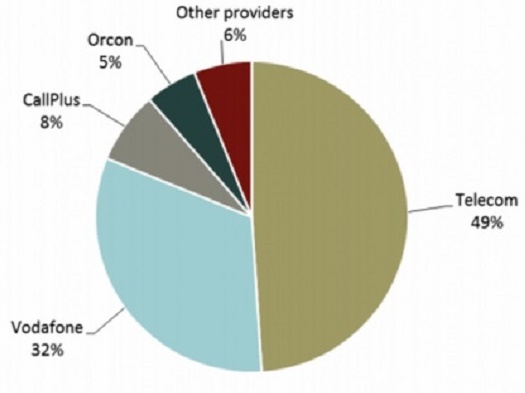Internet NZ ignites net neutrality debate

Net neutrality is a controversial issue in the US, Europe and elsewhere, but is rarely discussed in New Zealand.

"We believe that New Zealand will be best served by talking about network neutrality before there is a problem that demands urgent solutions," said Jordan Carter, chief executive of Internet NZ.
One reason for that is the increasing market power of a small number of large internet service providers.
Vodafone acquired TelstraClear's network in 2012 while in the middle of last year Callplus acquired Orcon. At that point, Spark, Vodafone and the Callplus group claimed 94 percent of connections, according to the Commerce Commission (see chart).
Since then, Vodafone acquired one of the largest remaining independents, WorldxChange.
Latest New Zealand news
Two other recent market changes make it more likely net neutrality will be challenged locally, an Internet NZ discussion document says. The first is bundling of content by ISPs.
"The specific concern from a network neutrality perspective in this context is with regard to blocking, throttling or deprioritising of content that is outside of that which is bundled by the ISP; for example, if an ISP was to partner with Netflix, but in doing so disabled the ability for customers of that ISP to access content from Lightbox, or if the experience in using Lightbox was degraded.
"In doing so, the ISP is effectively leveraging its relationship in the provision of telecommunications services with that customer to influence that customer's buying behaviour of content, in a manner that serves to benefit the ISP alone."
The second potential challenge is telcos charging for prioritised content delivery. They can do this by not providing caching for providers or degrading or throttling specific video content, Internet NZ says.
An industry code of practice requires New Zealand ISPs to disclose and throttling of services to users, but apart from that, they have great freedom to run their networks and services as they please.
"We want to facilitate a broad discussion about what Network Neutrality means for New Zealand and build a consensus on how to maintain network neutrality across the internet community, business, government and civil society" said Carter.